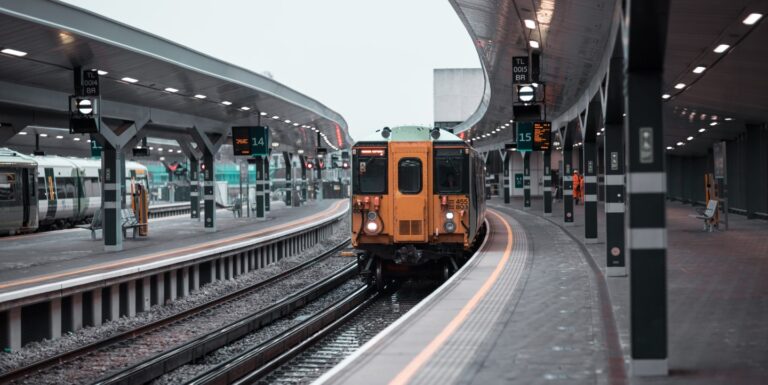Is the judgment in Paulley v FirstGroup actually a victory for wheelchair users?
Given the public interest in the case of Paulley v FirstGroup PLC, the now infamous “Wheelchair v Buggy” case, you may well have read about the success on behalf of wheelchair users following the judgment that was handed down in the Supreme Court.
But is this really the victory for wheelchair users that the press are portraying?
Facts in the Paulley v FirstGroup case
The case concerns FirstGroup’s policy on the use of the space provided for wheelchair users on its buses.
Doug Paulley is a wheelchair user who was unable to board a bus in 2012 whilst on his way to have lunch with his parents. The reason for this was that the wheelchair space was occupied by a buggy with a sleeping child in it. When the owner of the buggy was asked by the bus driver to fold it up to allow Mr Paulley to board the bus, she refused, stating it did not fold down. This meant Mr Paulley was unable to board the bus.
Mr Paulley issued a claim against FirstGroup saying that they had unlawfully discriminated against him by failing to make reasonable adjustments for his disability. This was in contravention of the Equality Act 2010, is a topic I feel very passionately about.
Initially, the court found that First Group had a “first come first served” policy, which meant that if a non-wheelchair user was using the space designated for wheelchairs, they would be requested to move, but if the request was refused nothing more would be done. This placed Mr Paulley and other wheelchair users at a substantial disadvantage in comparison to non-disabled passengers. The Court found that there were simple adjustments that FirstGroup could have made to rectify this situation, such as imposing a positive obligation on non-wheelchair users to move should a wheelchair user wish to board the bus.
FirstGroup appealed this decision. The Court of Appeal held that it was unreasonable to say that FirstGroup should adjust its policy so that its drivers had to require rather than request that non-wheelchair users make way for wheelchair users as necessary. The Court of Appeal also found that it was not reasonable to positively enforce that requirement with the ultimate sanction being removal from the bus.
Mr Paulley then appealed to the Supreme Court.
The Supreme Court’s decision in Paulley
The Supreme Court unanimously allowed Mr Paulley’s appeal. Therefore Mr Paulley claimed victory in the final battle in this war of the wheelchair v the buggy.
We must congratulate Mr Paulley on his victory and for continuing to fight for disability rights through a long, and no doubt exhausting, legal battle. However Mr Paulley’s win was limited to a certain extent.
The Supreme Court agreed with the judge at the first hearing. FirstGroup’s policy requiring a driver to simply request a non-wheelchair user to vacate the space without taking any further steps was unjustified.
But the Supreme Court did not agree that a rule forcing a non-wheelchair user to vacate the space would be reasonable.
The Supreme Court stated that:
- where the bus driver thinks the non-wheelchair user’s refusal to move is unreasonable
- the driver must consider some further step to pressurise the non-wheelchair user into vacating the space
This will be dependent on the circumstances.
The further steps which were suggested in the judgment include:
- rephrasing the request as a requirement; or
- refusing to drive on for several minutes until the non-wheelchair user moves from the space
Whilst I’m sure this wasn’t about compensation for Mr Paulley, as a litigation lawyer I could not help but note that whilst three of the Supreme Court Judges would have given Mr Paulley compensation, the majority did not.
The majority of the Justices found that:
- If FirstGroup had simply required its drivers to be more forceful, it is possible that it would not have made a difference to Mr Paulley;
- Mr Paulley may therefore not have been able to board the bus even if the driver was more forceful;
- It is therefore not possible to conclude that Mr Paulley would not have suffered the same disadvantage that he did
The majority of Justices therefore found that an award of damages is not possible.
The Paulley decision – a pyrrhic victory?
The Supreme Court decision is a victory. Mr Paulley won his case.
But in my opinion, this judgment doesn’t go far enough. The judgment doesn’t actually correct the inequality created by the policies of FirstGroup, and likely the policies of countless other companies around the country.
The first reason for this is that the judgment places a lot of the responsibility on the bus drivers to determine what should happen in these circumstances. This isn’t a change from the status quo.
The judgment stated that:
- it is when the driver concludes that the refusal is unreasonable;
- that the driver should consider some further steps to pressurize the non-wheelchair user into moving
And this is all dependent on the particular driver and set of circumstances.

Wheelchair user boarding bus on BBK wheelchair awareness day
Whether the bus driver will conclude that the non-wheelchair user should move from the wheelchair space is therefore dependant on the attitude of the bus driver; and we all have those days where we just cannot be bothered with an argument. This will mean that others may find themselves in the same position as Mr Paulley back in 2012.
The judgment does say that further steps should especially be taken where the non-wheelchair user could move elsewhere in the bus. But again this isn’t a positive requirement on the bus driver to definitely take those further steps. Surely, it is just common sense that people would move in these circumstances anyway? Or perhaps I am a little naïve.
The second reason is how the bus companies, and the individual bus drivers, will interpret the need to require non-wheelchair users to vacate the space on the bus. How far the bus companies will have to go to meet the definition of “require” is not clear in the judgment.
There is also the difficulty of whether the bus driver is actually allowed to leave his cab on the bus to try to require the non-wheelchair user to move. Certainly, as I understand it, on London buses the drivers are advised not to leave their cabs for safety reasons. Certainly if an argument is about to ensue, this could result in a situation where the driver felt it was unsafe for them to leave their cab. Again, this is a matter of judgment for the drivers themselves.
Therefore, in my opinion, we are not much, if any, further forward in creating equality for people with disabilities as a result of this judgment. The Justices have awarded a moral victory to Mr Paulley, and wheelchair users everywhere, without going as far as to make it “law” for the space to be vacated. I, for one, am disappointed about this. The Supreme Court had an excellent opportunity to create new law with this case, to correct a little bit of the inequality faced by disabled people on a daily basis. And it did not.
Please do not misunderstand me. This judgment is a positive one, and admiration has to be given to Mr Paulley and his legal team for fighting this case all the way to the Supreme Court. It was a fight that was won. The hint in the judgment that perhaps the government should have a look at the legislation is most welcome.
We will, however, need to wait and see how this judgment plays out in practice. That won’t only be for FirstGroup and other bus companies. We will need to see whether there are wider implications as a result of this judgment for all places with a wheelchair space: trains, supermarkets and perhaps even wheelchair accessible changing rooms at swimming pools.
So, let’s watch this space. All change please, all change.











